towards a democratic society…
Text of a talk given at a post-election forum organised by Maruah and The Online Citizen on 15 May 2011.*
This has been the most written about, most video’d, most followed and most discussed election in Singapore history, so I am not going to review the scores, the highlights and lowlights. That would put you to sleep – and I don’t have the licence to slap you awake.
Instead, I would like to offer some perspectives on what these polls mean for democratisation in Singapore.
Yesterday’s shock announcement that Lee Kuan Yew and Goh Chok Tong would retire from government confirms what has always been true about Singapore elections: the mathematical results are less important than how the numbers are interpreted. Even though last weekend’s vote amounted to an extension of the world’s longest running winning streak among countries with multi-party elections, even though Singapore’s is still a system with one dominant party, the government has interpreted the results as requiring it to undergo a significant makeover.
Lee Kuan Yew and Goh Chok Tong scored their share of own goals during the campaign, but in apportioning blame for unpopular government policies, it’s not the case that they had to bear more responsibility than their Cabinet colleagues. But, again, it’s the symbols, the narrative, that counts more than the facts. Lee Kuan Yew has chosen to sacrifice himself to give the strongest possible signal that this is a government able to mount a revolution from within, for a national cause that is greater than the future of the PAP’s high priest.
Similarly, the future of Singapore’s unfinished democratic project is not to be gleaned from last week’s score or even any survey results. It’s more of an exercise in reading tea leaves.
Today, I’d like to argue that a few steps have been taken towards greater democratisation, though probably not as much as the hype suggests. I’ll argue that although the political culture has evolved to be less amenable to top-down government, Singapore remains inhospitable to progressive causes and has yet to develop spaces for mature debate.
The struggle for Singapore’s soul, to borrow George Yeo’s expression, is just beginning. And, I’ll argue, it’s not just the politicians but also leaders of civil society and public intellectuals who have a role to play in producing a good outcome.
Changing political culture
The GE has reshaped the political terrain in a couple of indisputable ways.
First, Lee Hsien Loong’s promise to keep the system contestable cannot be reversed. It is clear that the electorate is less willing to accept an unfair playing field. To the extent that the public sees unfairness, it will apply a kind of electoral affirmative action: it will give the opposition a discount and judge the PAP more harshly. Thus, people crucified PAP candidates for saying silly things, but politely pretended not to notice when opposition candidates did the same. Tactical missteps of the PAP were dissected in detail, while the mismanagement of the Reform Party went unqueried, even by the ordinarily probing and perceptive Online Citizen. I’m convinced that the public will judge the PAP fairly only when the PAP plays fair with the opposition; oh, and when the PAP reviews ministerial salaries.
Furthermore, this GE is forcing the PAP to outgrow its dependence on a non-level playing field. This hasn’t happened yet, but it is moving in that direction.
Interestingly, this is not mainly the work of the Singapore Democratic Party, which has campaigned fiercely against injustice in the political system. Instead, it’s due to Low Thia Khiang’s Workers’ Party, which has chosen a strategy of scaling the walls instead of bringing them down. That’s the democratic significance of the WP victory in Aljunied: it taught the PAP that it can’t hide behind credentials or reputation, because the opposition can find credentialed candidates and build an attractive brand; nor can the PAP so readily use safety in numbers in GRCs as a way to hold on to seats, as the WP has shown that GRCs are a way to win big. Henceforth, the PAP will have to focus more squarely on issues that matter to the electorate, and that’s good for Singapore democracy.
Second, it is clear that Singapore’s political culture has shifted.
Decades of depoliticisation, in which normal politics has been replaced by technocratic administration, seem to have given way to an openly contentious culture. The largely unrestricted internet has played a major role here. Fifteen to twenty years ago, PAP leaders demanded deferential treatment in the name of “Asian Values”. Today, Confucian norms are no match for a citizenry accustomed to freewheeling blogs and online forums. The GE made it clear that Singaporeans no longer tolerate being talked down to.
Still focused on good governance
Beyond that, I would be cautious about claiming that Singaporeans are suddenly great supporters of democratic competition, and I am even less persuaded by claims that this was an internet revolution. I don’t think we can explain the GE outcome without reference to good old fashioned economic factors. Although Singapore has been enjoying double digit growth, the structural problem is that is growth pattern has changed. As one of the most open and exposed economies on earth, it has had three externally triggered recessions in the past decade, with heady growth spurts in between. Such volatility has played havoc with the government’s much vaunted planning capabilities. Policies concerning public transport, public housing and immigration have all been buffeted by violent swings in the economy, and all were major election issues.
So, before we conclude that Singaporeans are suddenly pro-democracy, it would be prudent to entertain the possibility that they are still mainly in favour of good governance. What is clear is that they want the PAP to govern better. By returning the PAP to power on Saturday, Singaporeans accepted the reality that it remains the natural party of government. By the end of the campaign, the need for the PAP to change was not in dispute. The debate was instead over whether the PAP’s own internalised values of service could drive that change, or whether it needed a stronger opposition to force the pace and and set the direction of the change. The electorate rejected, possibly permanently, the PAP’s model of self-motivated self-improvement. For decades, Singaporeans have bought the line that accountability and transparency could be pursued on the PAP’s own terms, with no need for strong external checks and balances. This position, bucking the global trend, was made plausible by the PAP’s record of corruption-free government and well distributed economic growth. This is no longer accepted, due to economic volatility coupled with the widespread conviction that the PAP is the only group that thinks that the PAP does not suffer from groupthink.
Nothing in this election has challenged the viability of the PAP’s brand of illiberal democracy. But Singaporeans are evidently not immune to a dose of democratic common sense: government, they’ve concluded, will perform better when confronted with a threat of unceremonious eviction, a threat that must occasionally be realised if it is to be taken seriously.
Democratisation, though, is more than about seats in the legislature going one way or another. It can also be measured by the progress made in values such as tolerance of diversity, as well as practices such as the exercise of public reason.
Is it a great victory for progressive causes?
That Singapore has hardly become a liberal society is shown by the fact that Singapore’s middle ground continues to reject the SDP. Yes, it was the most improved party. But despite having the most progressive platform – or I should say, because it’s the most progressive – its result was still a little below the opposition average.
As for the WP, I, like thousands of others at Serangoon Stadium, felt roused by the tide of people power. But I also felt uncomfortable when Low Thia Khiang, in the final 10 minutes of the most important speech of his political life to date, played the anti foreign worker card. He reminded Serangoon Gardens voters that they did not want a foreign worker dormitory to be built in their back yard. He criticised George Yeo for saying that the “the important thing is to do what is right, you cannot always worry about votes” and not resisting the dormitory.
I am proudest of my friends at Maruah and TOC when they stand up for what’s right even when the government and the majority of Singaporeans are not interested. In ordinary times, Maruah and TOC have not been afraid to champion foreign workers’ rights. I hope election fever hasn’t obscured anyone’s commitment to such causes.
Nurturing public debate
This leads me to my final point about the state of democratization, which is about creating a climate conducive to the exercise of public reason.
Personally, this has always been my main beef with the government. Singapore’s openness and diversity have always been great strengths in the cultural and economic realms. But the government has been intolerant of political diversity, and some of us in this room have personally suffered the consequences.
One of the positive developments we saw in this GE was ordinary citizens blowing the whistle on PAP politicians who displayed their intolerance and disrespect for opposing views and values. The public gave a strong signal that it would not stand for the kind of demonisation of the opposition and castigation of the electorate that had occurred in past elections.
The problem, though, is that while netizens helped to neutralise the PAP’s negative campaigning they did little to create anything positive. Other than a handful of influential bloggers such as Alex Au, netizens did little to grow the space for the kind of deliberation that is associated with a mature democratic political culture.
Instead of being cultivated as a space for reasoned debate, large expanses of online public space evolved into a grotesque mirror image of offline public space. The offline world has been rendered unconducive to the exercise of public reason by a thin-skinned, all-powerful government that builds pseudo-consensus by marginalising opposing views. In reaction, opponents of the government have colonised cyberspace with a vengeance, ensuring that its spectrum of views are limited in range – from the rabidly anti-government to the moderately anti-government.
Unlike the government, they cannot easily use defamation law as a political weapon; nor are they able to fix the careers of opinion-shapers in the media or in the universities; nor control the activities of NGOs that do not share their narrow worldview. They can use only words to punish perceived ideological opponents, which include those who dare utter anything positive about the government. Personal attacks, flagrant lies and twisted logic are all part of their arsenal.
Instead of positions being arrived at through argument, arguments were marshalled according to entrenched positions. At best, the cyber-opposition showed that it could outshout the government, thus giving the government second thoughts about its own intolerant approach to public debate. There is, however, no guarantee that Singapore will evolve a less polarised, more deliberative democracy. The internet has the potential to facilitate that evolution, but as of now this remains a promise that is largely unfulfilled.
Role of civil society
Allow me to conclude with some remarks on the role of non-partisan civil society in pursuing a progressive agenda for Singapore. Although Low’s winning battle cry was to start investing seriously in an alternative to the PAP, the ruling party’s continued dominance for at least the next five and probably 10 or more years is undeniable. Therefore, internal reform within the government is still an important avenue for change. In the short term, it is the most important avenue.
For anyone interested in this process, former administrative service officer Donald Low has written possibly the most important analysis of the government’s internal dynamics post-GE. He points out that “internal party politics, the party’s conservative ideology, and its hierarchical structure” are obstacles to Prime Minister Lee Hsien Loong’s goal of achieving genuine reform. Donald Low points out the risk of a conservative backlash if liberals in government demand too much too soon.
Reading such analyses, it is tempting to give up on the possibility of revolution from within. I know many Singaporeans who right now want to believe that the time has come when they can stop factoring the PAP into their calculations: post-GE, they can now demand political change on their terms and if the PAP doesn’t like it, they’ll just kick them out next time. This is politically naïve.
Just as it is a mistake to put all our eggs in the government basket, it is surely also a mistake to put all eggs in the opposition or non-government basket. I think reformers outside of government need to encourage and reinforce the government’s internal reforms, applying pressure that is perceptible, but without inviting a conservative backlash.
Singapore’s more experienced civil society activists and public intellectuals have a crucial role to play here.
These are individuals who have seen it all before; who have been slapped down many times, insulted, condescended to, treated like carriers of communicable diseases – but are still suckers for unpaid public service.
These are people who approach problems with open eyes. They see the obstacles, they are not naïve. But they also look out for glimmers of opportunity. This is the kind of skeptical hopefulness and idealism that many experienced hands in civil society already possess, and that I think will be indispensable for encouraging positive change in Singapore.
* Apologies to those who commented on this blog post while it was hosted on Apple’s Mobile Me servers. Comments were lost when I belatedly transferred the content to a new host after Apple ended its Mobile Me service.
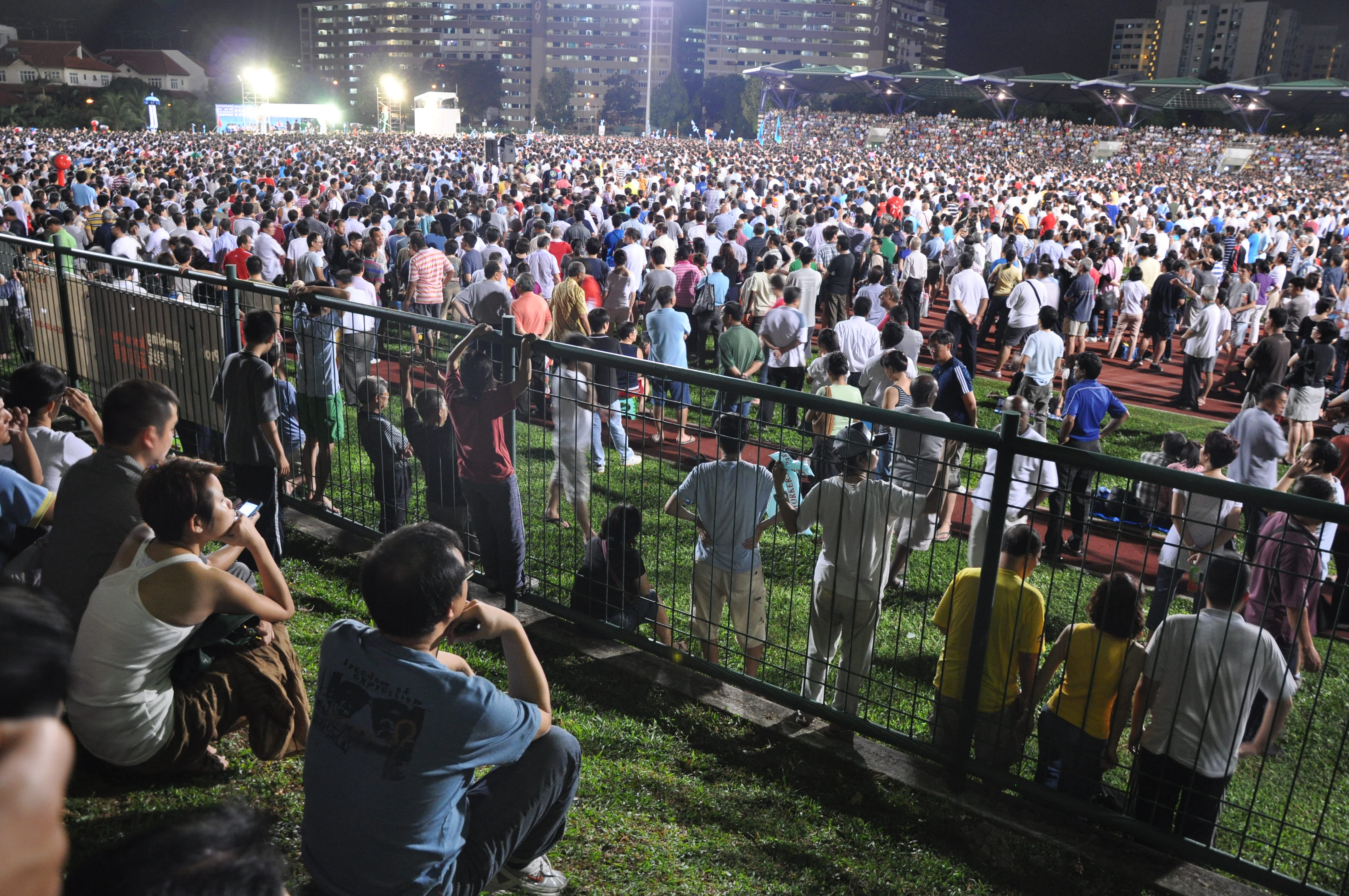

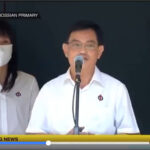

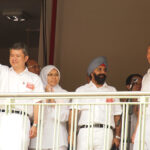
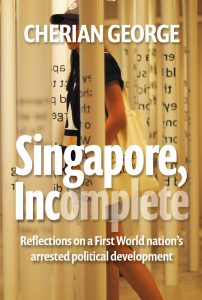
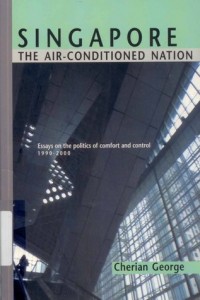
Comments are closed.